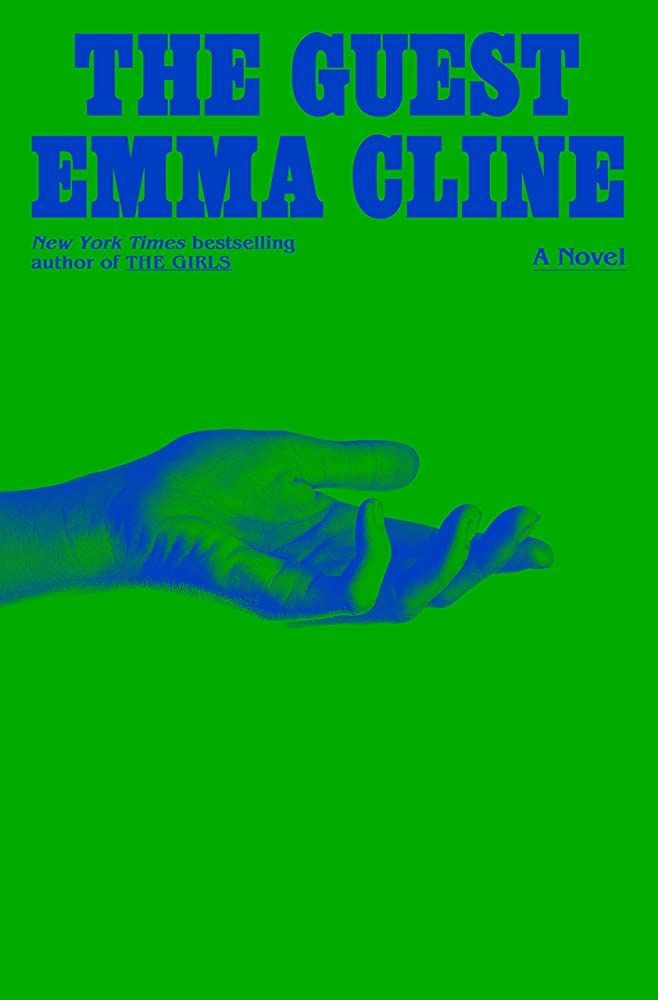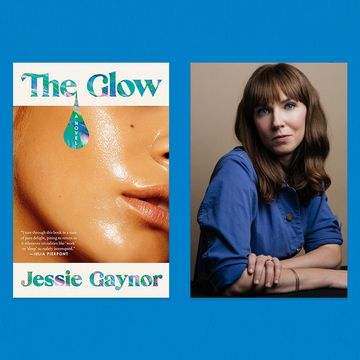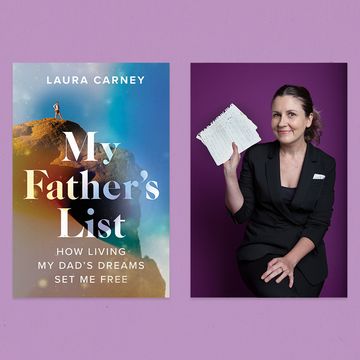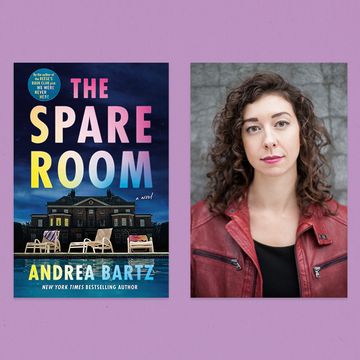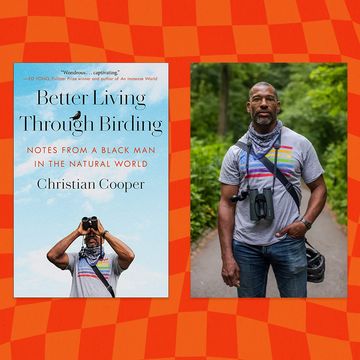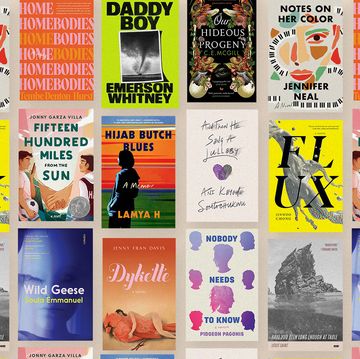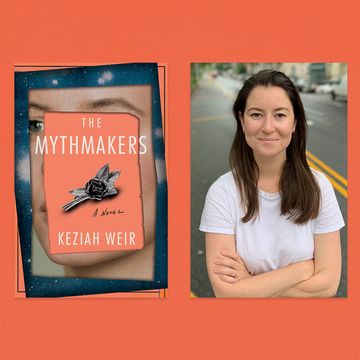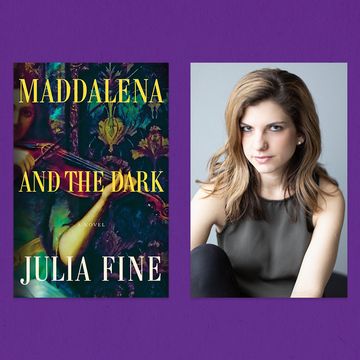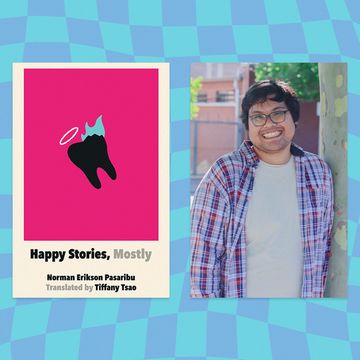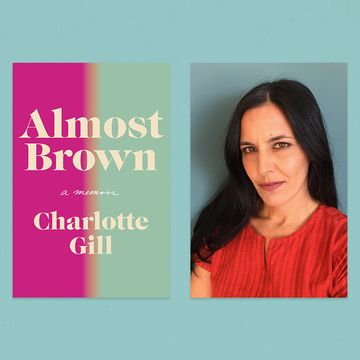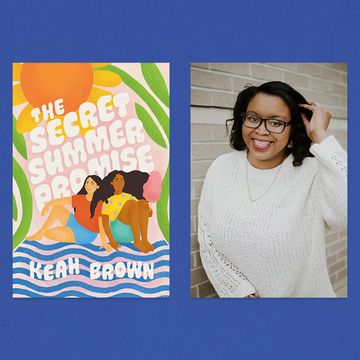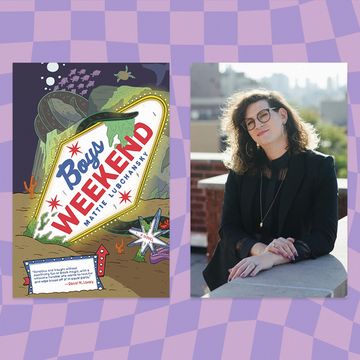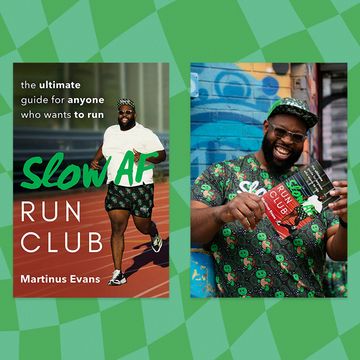Emma Cline’s first novel, The Girls, made headlines long before it was released. The novel was sold in a bidding war that involved 12 publishers and landed Cline a $2 million advance, eventually becoming a New York Times bestseller. Since The Girls was released in 2016, Cline has put out Daddy, a short story collection, and Harvey, a novella about the aftermath of the Me Too movement from Harvey Weinstein’s point of view. Now she’s releasing her first full novel since her successful debut, though she began writing the latest, called The Guest, before The Girls was released.
The Guest follows Alex, a sex worker (of sorts) who begins the novel living in relative comfort. She’s staying with Simon, an older, wealthy man, in his house in an exclusive Long Island beach town. But “beach house Alex” is a carefully constructed creature who knows how to keep Simon, and by extension herself, happy. But when she slips up and has to leave the luxury of Simon’s home, Alex has to scramble to find a new living situation while dodging an irate former client.
Shondaland caught up with Cline, who’s in California, where she’s already deep into her next novel as a way to stay sane during book release season. We chatted about writing a character this calculating, being an outsider in an insular community, and investigating the edges of human behavior through fiction.
SHELBI POLK: Where did this novel come from?
EMMA CLINE: So, I’m from California and had not really spent a lot of time on the East Coast until I was in my early 20s. I went out to Long Island for the first time, and I was so struck by the landscape out there. So different than California beaches, which, especially in Northern California, are frigid, shark-infested, rocky, gray. You don’t go there for mild beach-going. It’s a lot more extreme. And then to go out to this really beautiful, mild landscape that was almost surreal, the warm water and the dunes. I was so taken by it. And then that landscape felt in contrast with this very specific community that had grown up around it, or was in contrast to it, that seemed to mimic and exaggerate class and power elements that I saw, like, in the actual city. The whole thing was so weird to me, and I was like, “Oh, I want to write a book set in this environment.”
SP: Can you dig into how the beach towns mirror the city? What does that look like?
EC: I mean, obviously there are people who live there full time, year-round. And I guess what I’m talking about specifically is the temporary summer community. One of the times I went, it was to stay with a friend and his family. And I just realized, “Oh, this is not really a place for visitors.” You wouldn’t come for the day. You can’t park at the beach unless you have a resident parking sticker. There are all these ways in which this natural beauty is mediated by power and wealth and the sense of insider-ness, keeping out some kind of other. Even just all the houses are behind hedges and gates. It’s a very inward-turning place. And I thought, “What would it look like to have a character who moves through that world who was decidedly not an insider and really not supposed to be there? How could you get by day-to-day in a place which almost is rejecting your presence?”
SP: You walked a really careful tightrope here in building these relationships. Alex is absolutely only with this older man for the money and stability he offers, which is kind of the stigma about these relationships, right? But she’s also this wily, motivated woman who knows what she’s doing. So, you balance the truth behind the stereotype while also having her subvert it by choosing it. Can you dig into that tension there?
EC: Yeah, something I was curious about as I was writing was thinking about Alex in terms of subjecthood, objecthood, and the ways in which she’s playing with both. Is there a weird way in which the ways that she objectifies herself actually give her more power in this world? I think generally people would say being objectified is a way to lose your power or, you know, it takes away your agency. And I wanted this character to be playing with those ideas of how a young woman might access power in this world. And I didn’t want it to be a thesis on female agency. I wanted to let the character move through the question of it without answering it, if that makes sense.
SP: Absolutely. It seems like The Girls was about a character for whom the line between victim and agency was really blurry. But Alex doesn’t really read like a victim, even if she sometimes wants to think of herself as one.
EC: Yeah, totally. I think that was an interesting change, and I feel like a lot of my friends who are writers feel the same way, that in some ways you write a book almost to do a 180 from the book you wrote before. Evie is a character that really was innocent and acted upon by the outside world and felt herself to be this victim. And even just as a writer who spent time all day with this character, I wanted to write a character who really did not see themselves that way, who was acting more on the world. And for that reason, I think that was some of the choice to not have a backstory for her or some kind of accessible explanation for why there would be a character like her doing the things that she does. I didn’t want there to be a clear-cut reason.
SP: That totally makes sense. You can’t just explain her away easily.
EC: Right.
SP: She was very frustrating, in a great way. Do you think that what she actually wants is security, or is it much more than that? It’s mostly what she thinks about, but that doesn’t feel like enough either.
EC: Yeah, on one hand, part of the architecture of setting up a novel is like, “All right, she does need to have needs from day-to-day.” In her case, they’re as immediate as “My phone is broken. Where am I going to sleep? What am I going to eat?” But yeah, what’s the deeper need there? And I guess I was thinking of a character who in some ways is so perceptive about other people in the world around her and who can see these dynamics and move through them with some kind of ease. But then at the same time, she does not know herself in some fundamental way. And that combination, someone who is so knowing in certain arenas but then has this kind of blankness at her core. I don’t know if I can reduce it to what does she want. I guess it’s more like how is she seeing the world? To be almost self-delusional in this major way at the same time that she’s almost overly perceptive.
SP: Yeah, I feel like a lot of your work has to do with that gap between how you talk about yourself and how you actually come off. Especially in Daddy. But Alex knows exactly how she comes off, and she is tightly controlling her performance of gender, the impression she makes, whatever you want to call it. She’s working so hard to edit that perception in everybody else’s minds that she does seem pretty removed from herself. Can you dig into that separation between herself and her performance?
EC: I do think what you said about gender performance, as a sex worker, it really literalized that performance, the nature of like transaction and this power dynamic in relationships. I think she’s somebody who sees every relationship as a transaction and reads that intent into the people that she meets, even parents and children, or just the employees of the wealthy people whose world she’s in. That’s her lens on the world — transactional; everyone is hustling in some way. There isn’t a way to have a relationship that doesn’t have that valence, and it does alienate her from connecting with other people. And I think it alienates her from herself. And it was kind of interesting. I was like, “Okay, can I write a novel-length work with a character who is alienated from herself in this fundamental way? How do I draw a character with negative space?” And for Alex, it became a lot about like, “Okay, what is she noticing?” If we are kind of dropped in behind her eyes, she’s the camera that we’re seeing this world through. Maybe that’s how we get close to her, by noticing what she’s noticing.
SP: That’s so interesting because in some ways, it almost feels like a survival novel in that she’s just processing what she needs. And then there are moments of tenderness, but I feel like her miscalculations are often because she doesn’t have any empathy.
EC: Yeah, totally. When I was thinking about what to title the book, a lot of my ideas had to do with being a ghost or this sense of like a void. I actually like what you’re saying about survival, but there’s almost something existentially desperate.
SP: I love a good scammer story. But The Guest seems to de-romanticize that a little. Do you like these stories? Are you pushing back against them?
EC: I started the very first iteration of it in 2016. So, it’s almost before those stories hit the culture at large. I mean, there’s classic ones like Talented Mr. Ripley. That’s so interesting. How does Patricia Highsmith do it? What sorcery is she doing where you’re rooting for this guy to get away with murder? That as a literary trick is very interesting to me. And I think it’s just so fun to drop into a mind that isn’t behaving. I don’t want to read about a character who’s making all the right choices. I find as a writer myself and as a reader personally, I guess I’m interested in seeing how humans react to extreme situations. Or what are the edges of human behavior? And that ends up being people who are not making the best decisions.
SP: So, The Girls and your recent novella, Harvey, both have this framework of real-life events and real people that you spin off into your own thing. Is it different for you to approach an entirely made-up story, or did you still work off some kind of real-life framework?
EC: I think it’s almost the same in that the place where something usually starts for me is an image, or almost an atmosphere or emotional tone. So like with the Harvey story, it really was just reading in the newspaper that Harvey Weinstein was staying at a friend’s house while waiting for his trial. And he was watching a lot of Netflix, or some detail where I was like, “What?” I just had this flash of this character in this setting, and it just was like, “Okay, I need to write around that image.” And with The Girls, so much of it was less the historical facts and more these young women in this landscape. It’s almost more image-based than fact-based for me, if that makes sense.
SP: Oh, totally.
EC: And then for this one too, a lot of it was that imagery of the landscape out there. And it didn’t end up in the book, but I had this image that came to me of somebody out in the ocean and people waiting for them onshore. And the person in the water knew as soon as they came in, as soon as they came out of the water, they would be in huge trouble or something. There’d be some kind of darkness waiting for them onshore. They can’t go in, and they can’t stay treading water. There’s some emotional charge to that scene for me that kind of motored the book.
Shelbi Polk is a Durham, North Carolina, based writer who just might read too much. Find her online at @shelbipolk on Twitter.
Get Shondaland directly in your inbox: SUBSCRIBE TODAY

